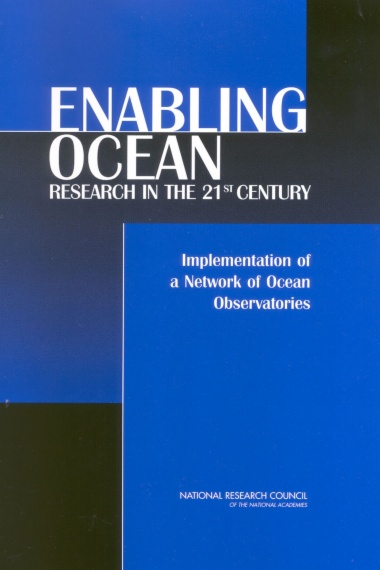As the importance of the oceans to society grows, so does the need to understand their variation on many temporal and spatial scales. This need to understand ocean change is compelling scientists to move beyond traditional expeditionary modes of investigation. Observing systems will enable the study of processes in the ocean basins over varying timescales and spatial scales, providing the scientific basis for addressing important societal concerns such as climate change, natural hazards, and the health and viability of living and non-living resources along our coasts and in the open ocean.
The book evaluates the scientific and technical readiness to move ahead with the establishment of a research-driven ocean observatory network, and highlights outstanding issues. These issues include the status of planning and development, factors that affect the timing of construction and installation, the cost and requirements for maintenance and operations, needs for sensor development and data management, the impact on availability of ships and deep submergence facilities, and the role of research-based observatories within national and international operational ocean observing systems being developed and implemented.
- Cover
- Front Matter
- Executive Summary
- 1 Introduction
- 2 Lessons from Existing Ocean Observatories
- 3 Status of Planning for Proposed Research-Oriented Ocean Observatories
- 4 Implementation of a Network of Ocean Observatories for Research
- 5 Related Facility Needs for an Ocean Observatories Network
- 6 Relationship of the Ocean Observatories Initiative to Other Observatory Efforts
- 7 Findings, Conclusions, and Recommendations
- References
- Appendix A: Committee and Staff Biographies
- Appendix B: Acronym List and Glossary
- Appendix C: Observatory Workshops and Workshop Reports, and Selected Reports/Documents on Ocean Observatory Science
- Appendix D: Ocean Observation Programs Mentioned in This Report
- Appendix E: Time-series Group Global Observatory Sites
- Color Plates

